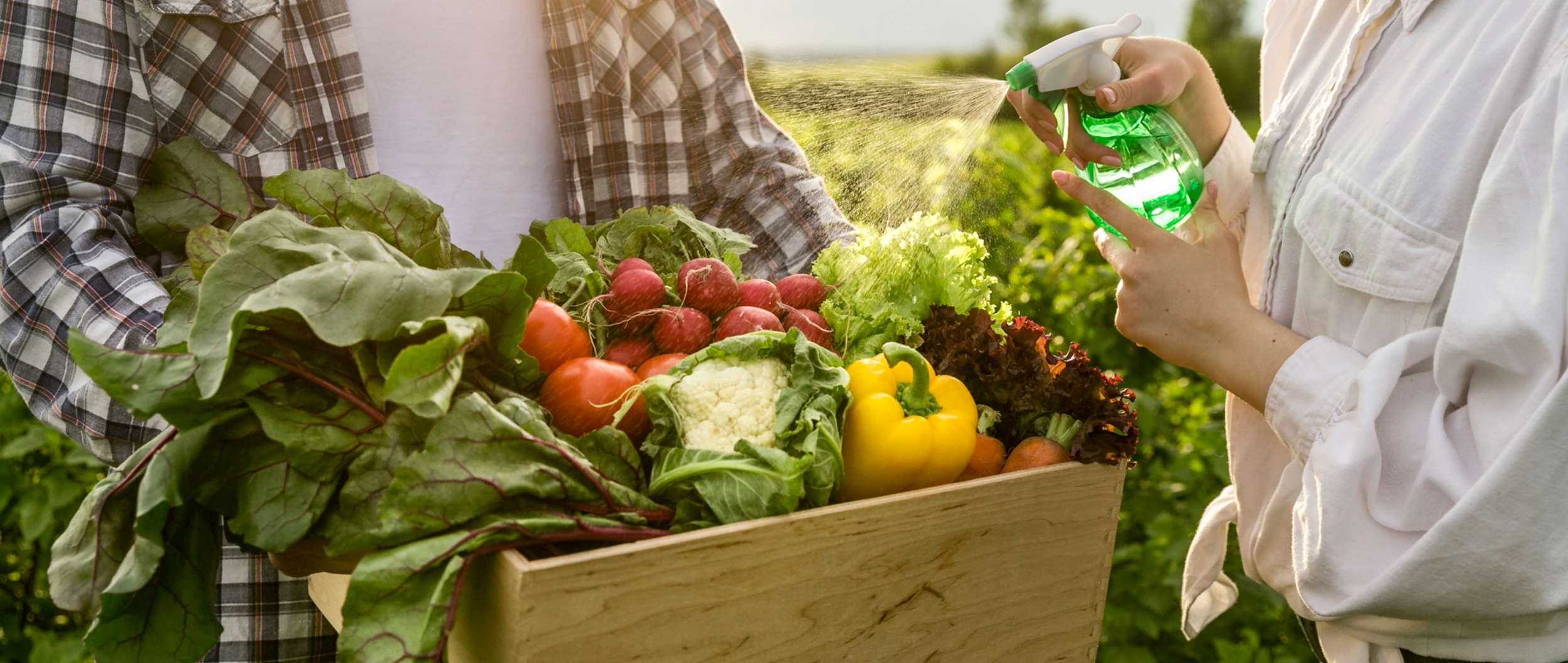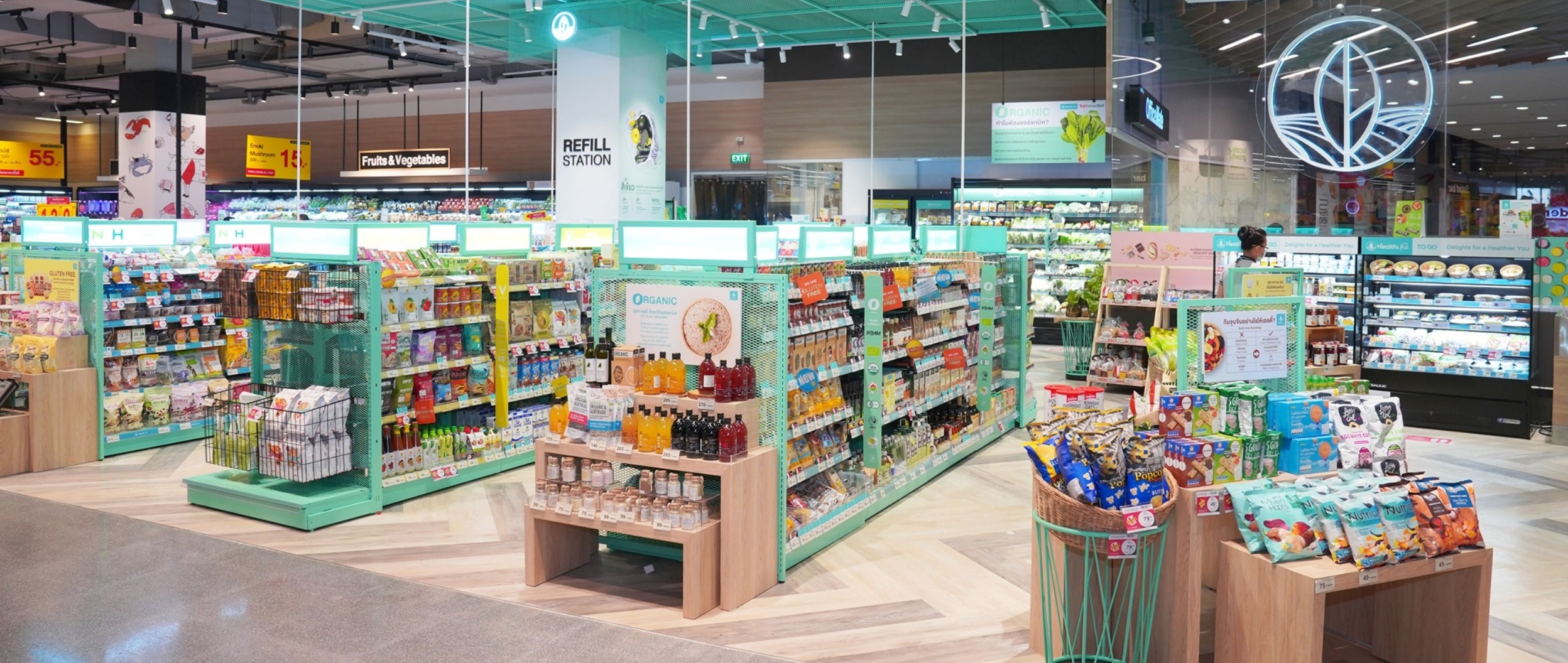Responsible Sourcing
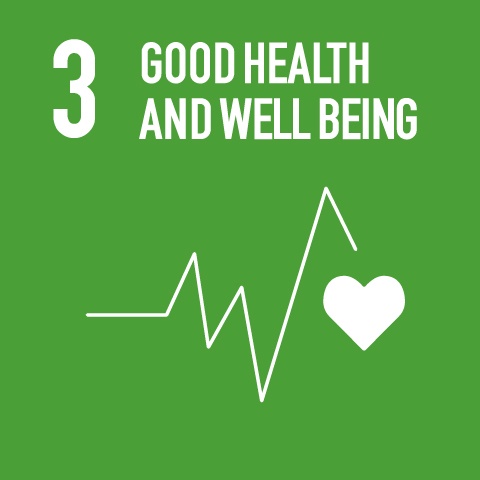
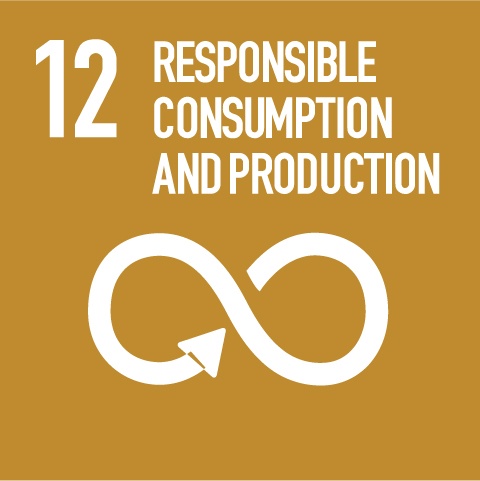
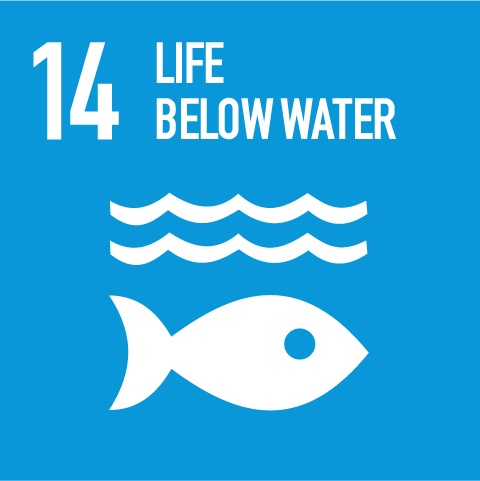
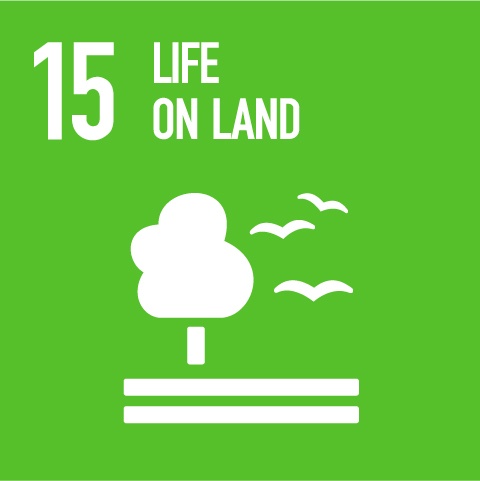
Central Retail’s procurement practices are already fully complied with relevant laws and international standards governing the quality of products and services being offered to the customers. But with the growing sustainability trends, conscious consumers have put responsible sourcing of products and services at the heart of retailing business. To this, Central Retail is committed that its procurement practices consider factors beyond compliance and own business operations by focusing on sustainability drivers in the upstream production process. This ensures that Central Retail aligns expectations and creates higher values for the environment, local communities, customers, and itself.
Target
Impact to Business, Stakeholders, and Human Rights
Central Retail’s efforts in demonstrating responsible sourcing to the customers help relay relevant constructive information such as manufacturer information, and nutrition facts comply with laws and international standards. Such practices help prevent regulation risks and less scrutiny from government agencies, encourage responsible and healthy consumption for customers, and improve Central Retail’s reputation and trust. Additionally, sustainability standard labels can also help raise the overall quality of product offerings, leading to a higher competitive advantage and business growth for Central Retail.
Management Approach
Core to Central Retail’s framework in overseeing responsible sourcing is the Supplier Code of Conduct. Not only are environmental and social criteria, as part of the Supplier Code of Conducts, used to screen out high sustainability risk suppliers, but Central Retail also assesses and collaborates with suppliers to expand responsible product offerings by implementing corrective actions, training, and capacity building programs. Importantly, beyond just any suppliers, Central Retail puts an emphasis on engaging with local communities as they are the key stakeholders in addressing environmental and social problems, but also have the most demand for support from Central Retail. Ensuring that suppliers and local communities understand pollution prevention and control and resource efficiency allows their products to become eco-friendly, while educating them about organic agriculture and agroforestry can help preserve and restore ecosystems and biodiversity. Workers and producers also benefit from minimal exposure to harmful chemicals and pesticides, and customers get to enjoy products of the highest quality that are healthy for their bodies. Last but not least, suppliers and local communities can gain economic benefits from selling high-value products leading to better income generation and livelihoods.
Embedding the Process of Responsible Sourcing
After Central Retail has ensured that suppliers and local communities responsibly make the products, Central Retail must demonstrate such attributes to the customers through specific labelling mechanisms and product category management. Central Retail sources products that have obtained eco-labels that certify environmental-friendly production methods as shown below.













For certain food product lines, Central Retail has established the ‘Quality at Heart’ traceability program that involves thorough inspections by third-party on 1) safety; 2) quality; 3) sustainable development; 4) environmental-friendly; and 5) fair price. Products under the Quality at Heart will have QR codes attached to the packaging that allow customers to scan and access information about where the products are made and packaged. Transparent information disclosure will help customers have higher confidence in the quality and information of the products, and Central Retail increases confidence about the food safety and quality of its products.
In addition, Central Retail has launched special product categories named as ‘Healthiful’ since 2019 to highlight organic and other healthy product lines being sourced by Central Retail. In 2024, the Healthiful store has expanded to 84 stores. Products that are listed under this category are assessed using the following criteria:
- Quality certification from the Food and Drug Administration to ensure good production quality
- Promote health and well-being of consumers
- Alternative product categories, such as organic, plant-based, vegan, digestive health, high-protein, and ketogenic
- Products to accommodate health restrictions, such as those for diabetic patients, gluten-free products, MSG- and preservative-free products, cholesterol-free products, dairy- and lactose-free products, low-sodium products, low-fat products, and low-sugar products
To communicate with customers on how Central Retail’s responsible sourcing practices benefit local communities, Central Retail has established the Jing Jai Farmers’ Market since 2018 to dedicate specific retail spaces within Central Retail for local products. The Jing Jai Farmers’ Market hosts local products developed by local communities that are directly engaged with Central Retail, and many other local products such as OTOP products. The initiative encourages local communities and farmers to be present at the stores to have direct dialogue with the customers. With this, local communities can share their narratives and stories, and verbally guarantee the quality and environmental-friendly production methods of their products.
Central Retail continuously conducts inspections on the quality of its products and provides communication channels via hotline 1467 for customers to inquire about the products or issue complaints. For complaints, Central Retail first investigates the problems, and will coordinate with relevant parties to address any substantiated complaints.
Jing Jai Farmers’ Market
Biodiversity Conservation
Central Retail acknowledges the significance of biodiversity along with the imperative to safeguard ecosystem functions and services, and has announced the Management Commitment on Biodiversity Conservation and No-Deforestation. Central Retail aims to achieve no net loss (NNL), while also striving to generate net positive impacts (NPI), including the attainment of no net deforestation targets. Central Retail conducts biodiversity risk assessments, monitoring, and remedial activities, through collaborations with crucial stakeholders, including suppliers, business partners, community members, and external technical experts. The biodiversity risk assessment covers dependencies and impact-related risks in priority areas across the value chain and incorporates the World Wildlife Fund’s Biodiversity Risk Filter tool (WWF BRF) into the process. Moreover, Central Retail implements biodiversity conservation and restoration in collaboration with external partners, such as the World Wildlife Fund (WWF) Thailand, Thailand Organic Foundation (TOF), and Thaicom Public Company Limited.
| Biodiversity Risk Assessment | |
|---|---|
| Scoping the Assessment |
|
| Collecting Location-specific Company and Supply Chain Data |
|
| Assessing Biodiversity-related Risks |
|
| Aggregating Biodiversity Risk to Central Retail and Portfolio Level |
|
Project Highlights
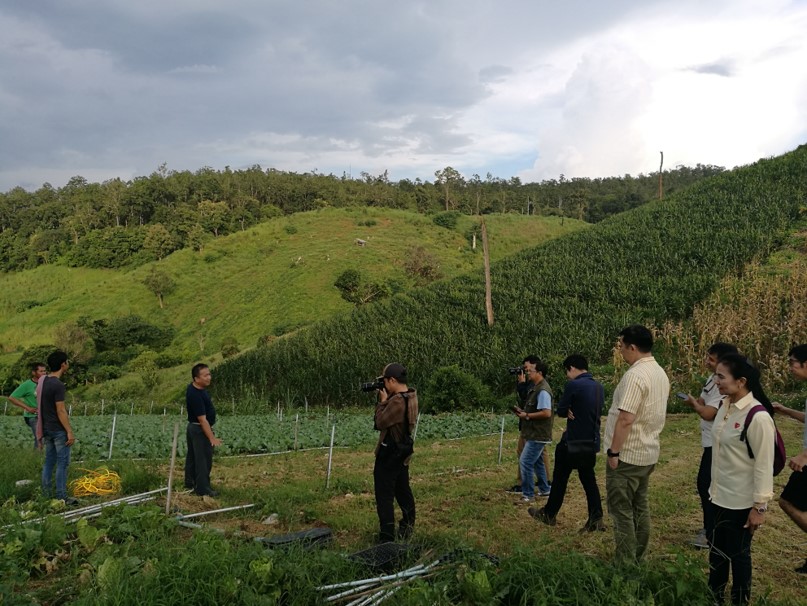
Mae Chaem Project
Central Retail, in partnership with World Wide Fund for Nature (WWF) Thailand, Thailand Organic Foundation (TOF), Thaicom PCL, Royal Forest Department, and local government agencies have implemented community initiatives aimed at restoring the ecosystem through developing sustainable food system in Mae Chaem District, Chiang Mai province since 2018. For local communities to live in the Mae Chaem, which are protected areas, they must coexist with nature through a food system that can create social and economic, and environmental co-benefits. Central Retail supports local communities through capacity building programs to help them shift from monoculture to sustainable agriculture that can help improve soil, as well as water quality, and restore forest areas.Central Retail also provides marketing support so the products from local communities can be sold via Central Retail’s distribution channels.
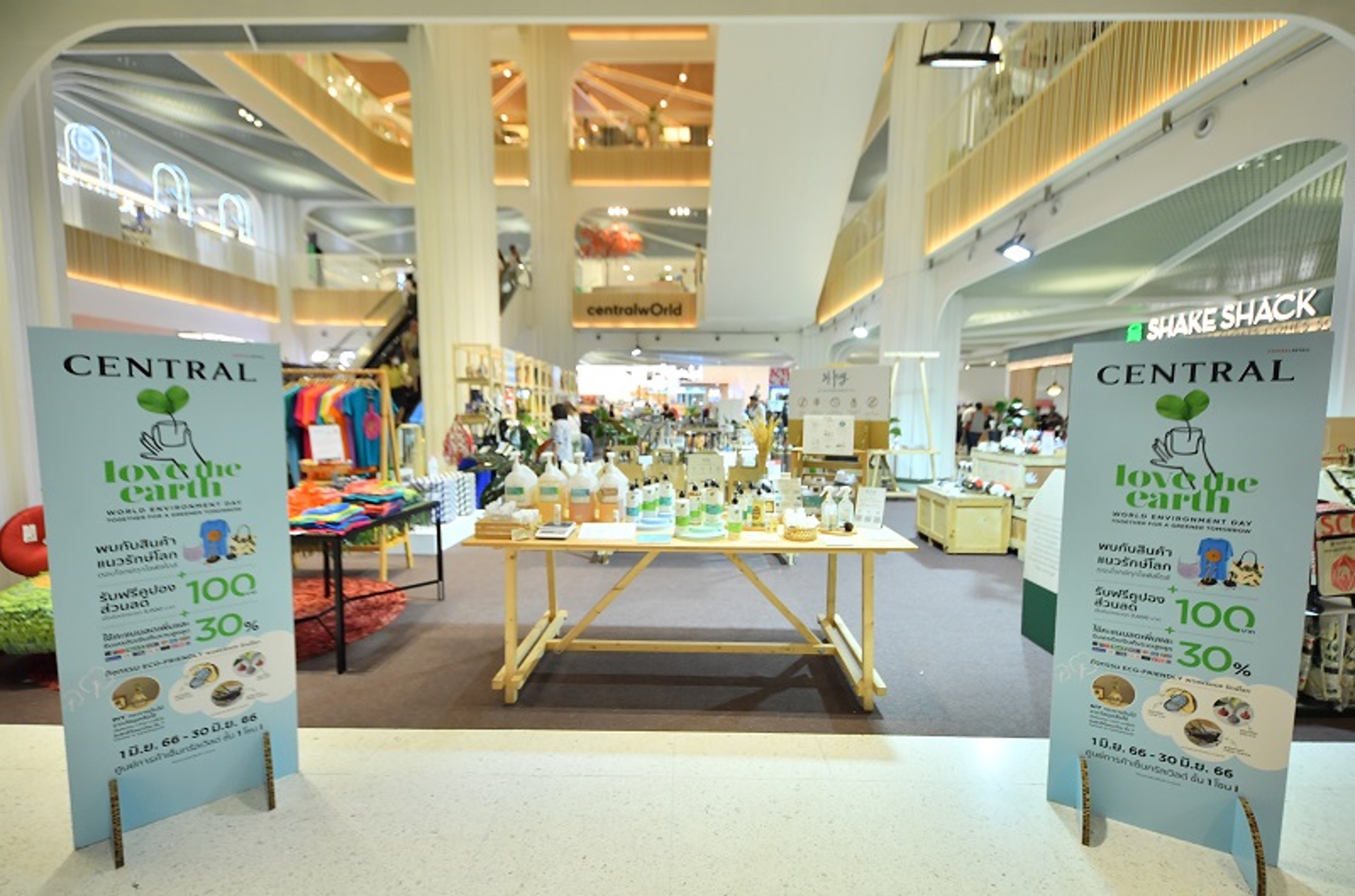
Central/Robinson Love the Earth 2023
Central Retail go forwards the mission of 50,000 rais (80 million Sq.m.) by 2030, Central Retail restore and increase green spaces by planting 100,000 trees in the area of approximately 490 rais (784,000 Sq.m.), which is directly promote natural-based solutions to climate change. In other ways, the project drives environmental awareness and actions to suppliers and local enterprises such as production pollution, packaging waste, etc.
In 2023, the missions were promoted, Central Retail conducted events in various locations of Central Department Store and Robinson Department Store, during June 2023, under Campaign ‘Central/Robinson Love the Earth 2023’. The topics of sustainability and environmental protection were scheduled in Talk sessions, the green products and its branding were presented, DIY workshops and activities also held in the events. The returns from the campaign will support the annual missions of planting 100,000 trees, which can estimate 466 metric tons CO2e of carbon sequestration per year.
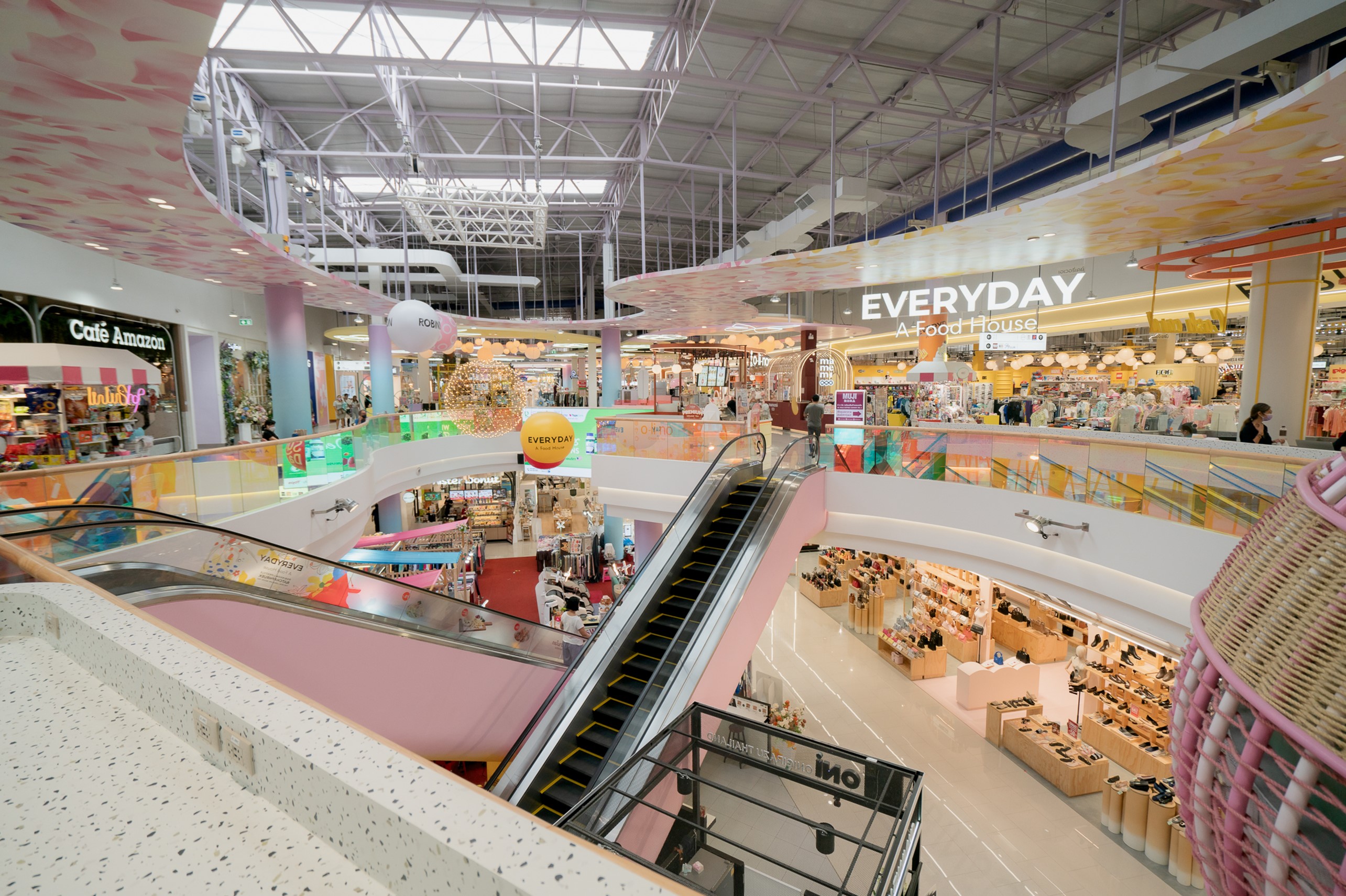
Everyday Everywhere Shop to Promote Development of Local SMEs
Central Retail aims to support local small and medium enterprises (SMEs) via its distribution channel in the department stores under Robinson Lifestyle. Local SMEs that participated in this program are supported via our online platform for promoting SME products, and retail space specifically dedicated to them called Everyday Everywhere Shop. In 2023, there are two Everyday Everywhere Shops located in Robinson Ratchapruek and Robinson Chalong with nine participating SMEs from Bangkok, Nonthaburi, Nakhon Pathom, Chiang Mai, Petchburi, and Songkhla provinces.
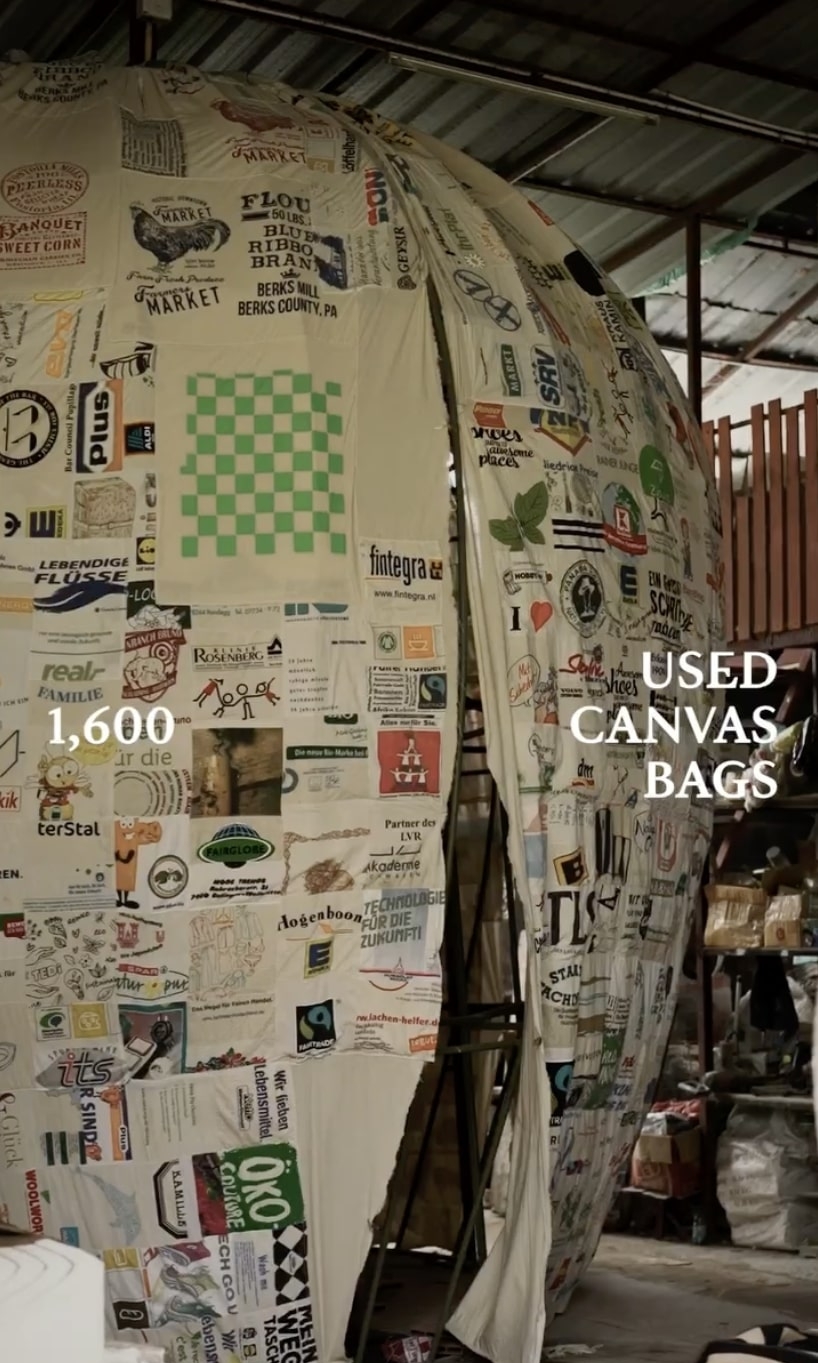
Central Department Store Decoration from Local Products
Central Retail has collaborated with LaRocca, a Bangkok-based upcycling fashion brand, to create an art installation to decorate the Central Department Store at Mega Bangna branch with more than 1,600 used canvas bags. This project helped to deliver a superior shopping experience in line with responsible sourcing and also reducing waste.
In addition, Central Retail engaged with the Hup Ka Pong community in Phetchaburi province to exhibit their sculptures made from recycled filament at Central Westville branch. At the same venue, Central Retail also partnered with CTRL+R Collective to display a pop-up exhibition of circular, biodegradable, compostable, and recycled materials, which let visitors to explore the possibilities of sustainability in the retail sector.


